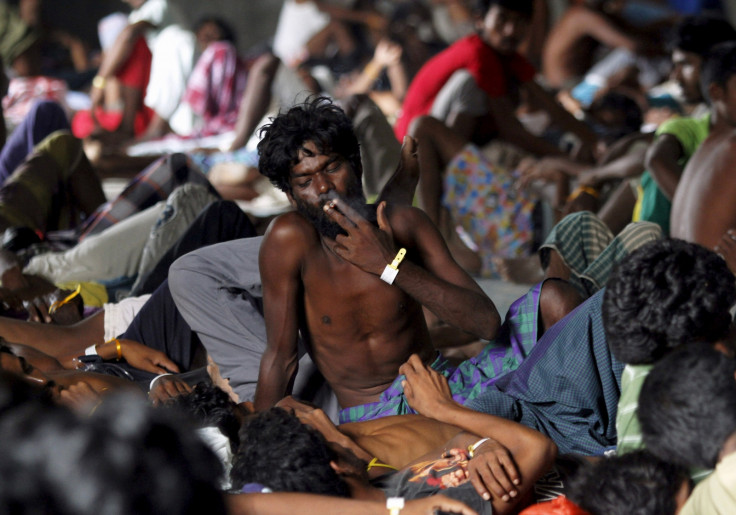Southeast Asia migrant crisis: Malaysia and Indonesia offer temporary shelter

Malaysia and Indonesia have offered shelter for the 7,000 odd Rohingya and Bangaldeshi migrants adrift at sea, but have made it clear that the assistance was temporary and would require international assistance.
As part of the commitment, Malaysian Prime Minister Najib Razak on Thursday (May 21) ordered the Royal Malaysian Navy and the Malaysian Maritime Enforcement Agency (APMM) to conduct search-and-rescue operations for the migrants who have so long been turned away by both Malaysia and Indonesia.
The operations are meant to prevent loss of lives, said Najib on his Twitter account.
More than 3,000 migrants have landed so far this month in Malaysia and Indonesia. Many have been turned away despite appeals from the United Nations to take them in.
The migrants are mostly Rohingya Muslims from Myanmar and Bangladeshis, fleeing from persecution and poverty or abducted by traffickers, reports Reuters.
"What we have clearly stated is that we will take in only those people in the high sea," Malaysian Foreign Minister Anifah Aman said. "But under no circumstances would we be expected to take each one of them if there is an influx of others."
Thailand draws line
Thai authorities, meanwhile, have drawn the line at helping the sick but refrained from committing on allowing migrants to disembark.
However, Thailand said that it would not force boats back out to sea.
Thailand has called a regional conference on the issue in Bangkok for 29 May.
The boats with migrants have been towed away between the countries fearing a major influx of refugees.
Myanmar has denied responsibility for the crisis and did not attend a meeting of regional foreign ministers on Wednesday (20 May).
"We are not ignoring the migrant problem, but... we will not accept the allegations by some that Myanmar is the source of the problem," Zaw Htay, director of Myanmar's presidential office, told AP.
The United States has indicated it would provide financial and resettlement aid to help deal with the crisis, Acting State Department spokeswoman Marie Harf told a briefing in Washington.
Washington was also prepared to take a leading role in any multi-country effort organized by the United Nations High Commissioner for Refugees (UNHCR) to resettle the most vulnerable migrants, she said.
The United Nations has called upon Myanmar to stop discrimination against Rohingya Muslims that was forcing migration into the Andaman Sea and the Malacca Strait.
Most of Myanmar's 1.1 million Rohingya Muslims are stateless and live in apartheid-like conditions. Almost 140,000 were displaced in clashes with ethnic Rakhine Buddhists in 2012.
Myanmar terms the Rohingya "Bengalis", as they are immigrants from neighbouring Bangladesh who have settled in Myanmar.
© Copyright IBTimes 2025. All rights reserved.





















